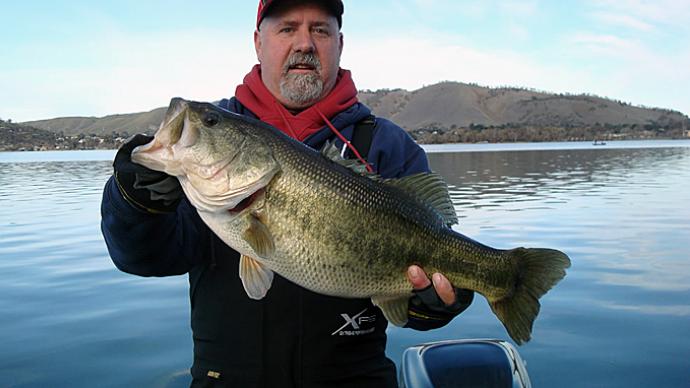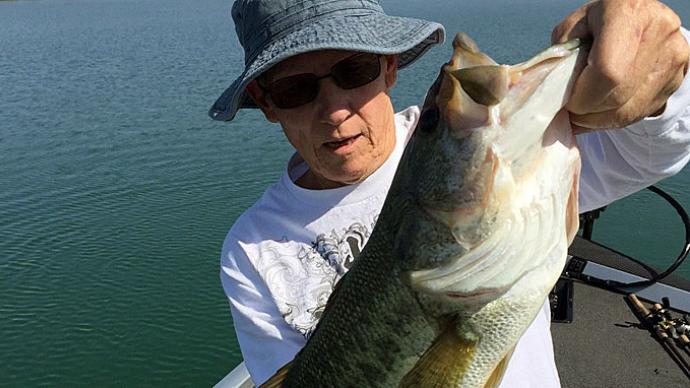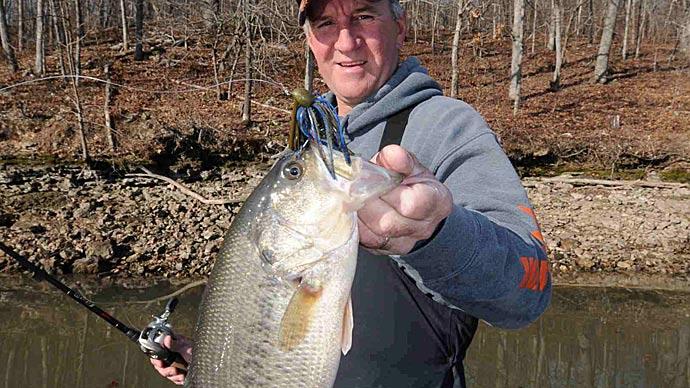|
What You Should Do If You Think You've Caught a World Record If you catch a fish you think may be worthy of a record (e.g., lake, state, line class), use these tips to ensure your record fish won't get away: Don't delay! Remember, don't delay in weighing your fish. Several elements may cause your fish to lose valuable weight if you wait too long. (The worst mistake is leaving a fish in the sun, which can sap ounces, even pounds, off a fish in no time). Weigh your fish. Immediately return to shore and weigh the fish on an IGFA-certified scale. If you don't have a certified scale, drive to your nearest bait and tackle shop, they will most likely have a certified scale for your use. Take pictures. Photographs are the only way I.G.F.A. judges can ensure your catch is real. So take numerous photos of your fish from as many angles as possible. Also, take photographs of your fish being weighed on a scale. Plus, pictures are the best way to convince your friends- the toughest judges! Line samples. I.G.F.A. judges require you to send at least 50 ft. of the line used to catch your fish. In addition, testing must be done to ensure the class record of the fish. (Different rules apply for fly records. See I.G.F.A. "World Record Game Fish" book for more details.) Entry form. Once you have your pictures and line samples, fill out the official I.G.F.A. record form and send in your documents. To obtain official rules and an I.G.F.A. entry form, call 800/661-9086. Be sure and make copies of all materials sent for your records. Send all final documents to: IGFA300 |
To help in the quest to land a world-record fish - or even that mystical "100-year-old bass" from the depths of your local lake. 9-time B.A.S.S. Angler of the Year Roland Martin offers a few tips.
"There are a few simple things that any angler can do to ensure they're spending quality time on the water," says Martin. "One great way to get prepared and build anticipation for any big trip is to check out fishing reports in local newspapers, outdoor journals, or even on the Internet. These outlets are usually the most accurate way to get the information you need to determine when and where to fish.
"It's also a great way to see what the fish are biting - especially if you're on a lake or river unfamiliar to you."
Martin also notes that big fish tend to swim in big water. "Although trophy fish can be found in small bodies of water," says Martin, "you generally have a better chance at catching a trophy fish in large lakes, reservoirs, or rivers.
"Once you're on the water," says Martin, "it is essential to use reliable equipment. Even if you're not going for a record, losing a fish is frustrating due to equipment failure. Using reliable equipment is one way to remove any doubt that a fish will break loose."
Martin recommends spending a few extra dollars for a new rod or reel. You may want to use a braided line instead of a monofilament line, particularly when battling large, toothy game fish such as Northern Pike or Muskellunge.
"In addition braided lines are helpful because they offer extreme sensitivity. With little to no stretch, these lines help anglers feel everything at the end of their line. It's literally like having an extra set of eyes in the water.
"Another tip that can often be overlooked," says Martin, "is to be prepared. You never know when a trophy fish will tug at your line. So having a camera, net, and scale on your boat, as well as knowing where the nearest tackle shop is, will ensure that your fish, and the memorable battle it gave, will never be forgotten.
"And finally," says Martin, "have patience. So many days throughout my career, I didn't have a bite all day. But by staying patient, alert, and effectively casting, that 'last cast of the day' has turned up some memorable fish.
"The most important element to fishing," adds Martin, "is to have fun. You won't catch a monster on every cast, but spending a day fishing with friends or loved ones is more important than any record in the book."
All-Tackle World Record Fish
| Species | Weight | Place |
| Largemouth Bass Smallmouth Bass Brown Trout Channel Catfish Black Crappie Muskellunge Northern Pike Coho Salmon Steelhead Walleye |
22 lb. 4 oz. 10 lb. 14 oz. 40 lb. 4 oz. 58 lb. 0 oz. 4 lb. 8 oz. 67 lb. 8 oz. 55 lb. 1 oz. 33 lb. 4 oz. 42 lb. 2 oz. 25 lb. 0 oz. |
Montgomery Lake, Georgia Dale Hollow, Tennessee Little Red River, Arkansas Santee-Cooper Reservoir, S.C. Kerr Lake, Virginia Lake Court Oreilles, Wisconsin Lake of Grefeern, Germany Salmon River, New York Bell Island, Alaska Old Hickory Lake, Tennessee |




